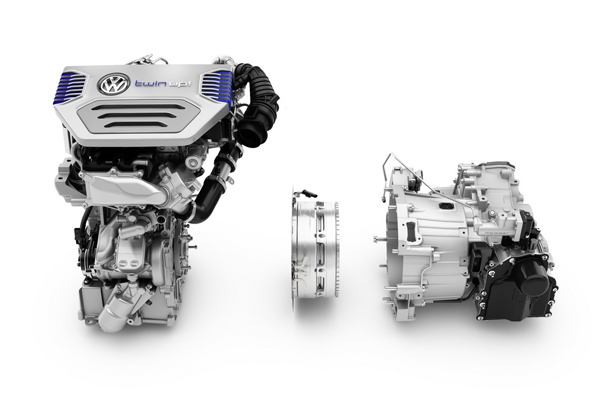Volkswagen Petrol Engines Will Soon Get Coasting and Variable Compression System

Volkswagen Petrol Engines Will Soon Get Coasting and Variable Compression System

Volkswagen group is gearing up for a revolutionary technological advancement in their next generation petrol engines
Volkswagen has recently announced that they are gearing up for another revolution in the field of petrol engines and they will update their next generation petrol engines with most advanced technologies coasting and variable compression ratios to boost up the performance and efficiency of their engines and ultimately for the VW group. This technology will exclusively improve the efficiency of Volkswagen engines and will turn out maximum output from minimum possible use of fuel resources, according to VW.
Audi’s technical chief Ulrich Hackenberg has also given a hint on this revolution and said that VW is preparing for a revolution in petrol engine efficiency. He further added that engines with “electro-mechanical support for forced induction” and “variable compression ratios” were in development.
Hackenberg was talking to the annual conference of Audi and he further said on this news that coasting technology would turn out to be an imperative fuel-saving technology soon in the future. This technology works to disengage the engine from transmission when it revs beyond the limits and or overrun. It is not an entirely new technology but is already built into several Volkswagen models which are using dual clutch automatic transmissions.
Will Audi be introducing this technology in near future? Ulrich Hackenberg did not give any details about variable compression ratios technology or the coasting technology for the Audi but Saab has established its experimental SVC engine with supercharged and turbocharged technologies back in 2000, with transformed combustion chambers to change volume, therefore the compression ratios. Recent technologies are changing the compression ratios by changing the crankshaft working.
New downsized engines which are using two or three cylinders will get benefit from this technology however, turbocharged engines will perform efficiently even from a standstill.
A list of technologies like, cylinder deactivation, Coasting, variable compression ratios and even electric turbochargers will open new ways of efficiency for petrol engines in future but we should wait and see that when this combination would be introduced in our cars
Categories
- 2013 Dubai Motor Show
- 2013 Frankfurt Motor Show
- 2013 Geneva Motor Show
- 2013 Shanghai Motor Show
- 2013 Tokyo Motor Show
- 2014 Detroit Auto Show
- 2014 Geneva Motor Show
- 2014 New York Motor Show
- 2014 North American International Auto Show
- Alfa Romeo
- Aston Martin
- Audi
- Audi A4 Check Engine Light
- Automotive News
- Avensis
- Beijing International Motor Show 2014
- BMW
- Cadillac
- Chevrolet
- Chicago Auto Show 2014
- Chrysler
- Citroen
- Daihatsu
- Detroit Motor Show 2013
- Diesel Engines
- Engines
- EV
- Fiat
- Ford
- General
- General Motors
- Geneva Motor Show 2014
- GM
- Guest Post
- Honda
- Hyundai
- Ideal Engines Reviews
- Infiniti
- Infographics
- Isuzu
- Jaguar
- KIA
- LA Motor Show 2013
- Lancia
- Land Rover
- LandRover
- Lexus
- Lotus
- Maserati
- Mazda
- McLaren
- Mercedes Benz
- Mini
- Mini Cooper S
- Mitsubishi
- New Technology
- Nissan
- Peugeot
- Porsche
- Range Rover
- Renault
- SEAT
- Skoda
- Smart
- Subaru
- Super Cars
- Suzuki
- Top Ten
- Toyota
- Transmissions and Gearboxes
- Uncategorized
- Vauxhall
- Volkswagen
- Volvo
- VW
